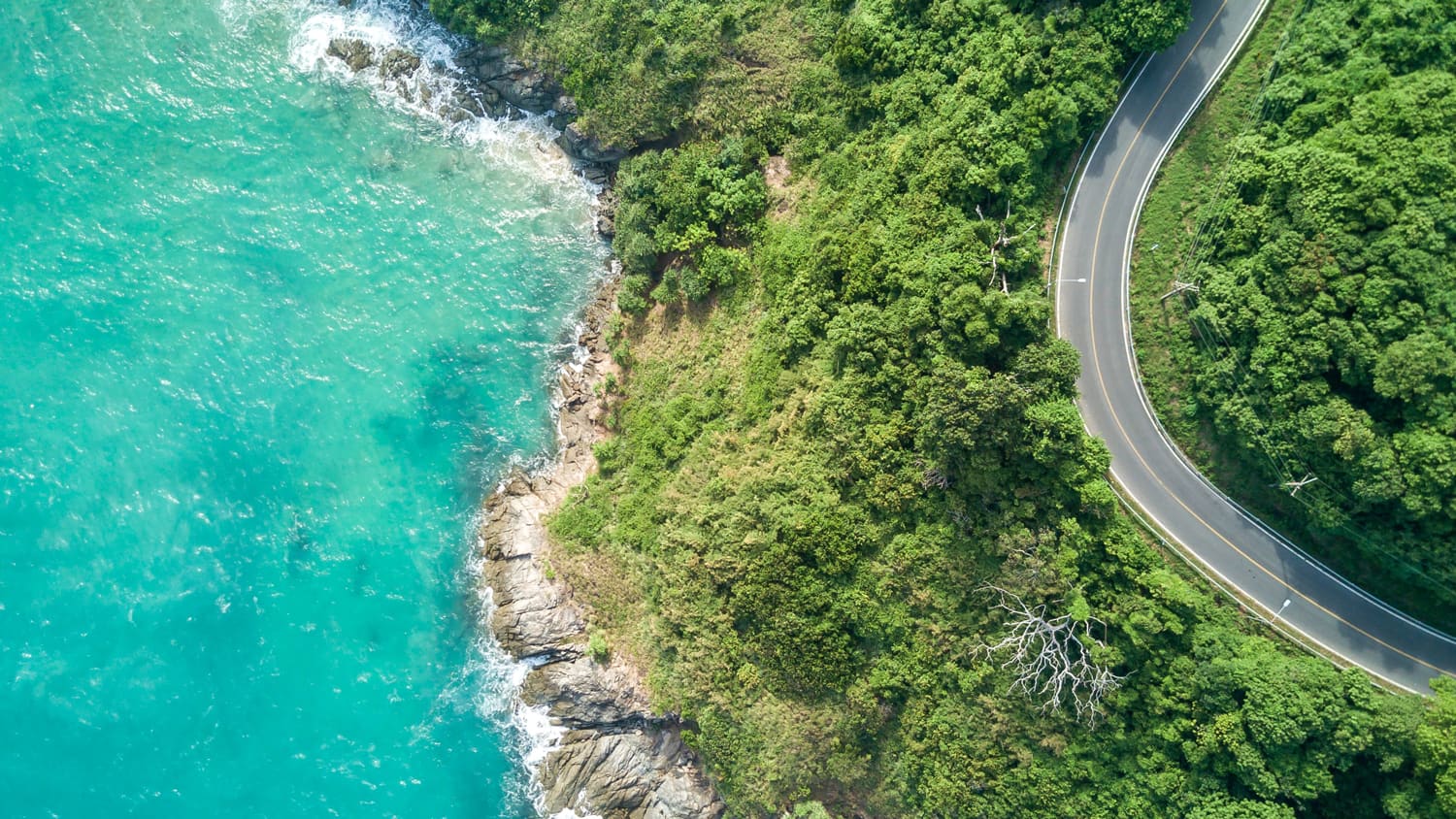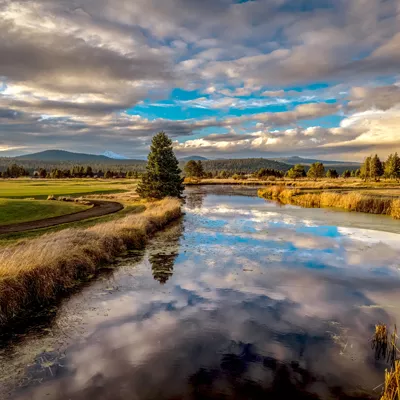Public Humanities Collaboratory

Location: OSU Corvallis Campus, H.J. Andrews Experimental Forest, The Cabin at Shotpouch Creek and Lopez Cottage on the McKenzie.
We invite curious people with expertise across disciplines, practices, and modalities within the humanities to apply for a 2024-2025 Watershed Fellowship with the Public Humanities Collaboratory. The Public Humanities Collaboratory convenes scholars, creatives, cultural practitioners, and nonprofit and community leaders to engage in collective inquiry with the aim of discovering new approaches to enduring or emerging challenges.
Four fellows will be selected to participate in the one-year Collaboratory experience that involves two components:
- A series of facilitated interdisciplinary discussions intended to explore thematic issues from diverse perspectives, build connections through active listening and reflection, and inspire new trajectories of thought, work, and purpose. Fellows will be in conversation with activists, scientists, and artists working to create or revive the knowledge and perspectives that can guide us through this critical time of social and ecological crisis.
- Development of a public humanities project relevant to the Collaboratory theme that enables the public or a community to see connections, understand challenges, or invent opportunities.
For 2024–2025 Watershed Fellowships, we welcome applications from philosophers, writers, historians, activists, teachers, storytellers, theologians and community leaders whose work engages human connections with water.
Overview
Water flows around and through us, connecting us to land, people, other life forms, histories, and futures. Whether we fish nearby riffles for dinner, irrigate thirsty crops, or birdwatch at the local reservoir, our watersheds deeply influence our values and shape our lives. Watersheds both sustain us and are part of who we are as humans. Yet, from the intensifying effects of the climate emergency to degradation from development and polluting industries, the watersheds we rely on are changing in unpredictable and unprecedented ways. Faced with these threats to our ecosystems, livelihoods, traditions, and wellbeing, we are called on to reimagine our relationships with water.
During this one-year fellowship, we invite you to harness the reality-shifting, imaginative power of the humanities to explore a central question: What ideas, ethics, wisdoms, stories, and efforts might help us build more mindful and just relationships with our watersheds?
For the full year, fellows will engage in research and projects beyond the channeled banks of expertise to find places of confluence with others in a larger thinking community. We are committed to fostering dialogue across disciplines and will facilitate opportunities for fellows to connect with each other's work and ideas.




Residency Details
These fellowships are open to scholars, researchers, writers, and community or nonprofit leaders whose work is grounded in the humanities. That is, we welcome applications from those who employ interpretive, discursive, and creative methods to approach questions and issues involving the human experience and human impacts. This includes those working in traditional humanities disciplines (philosophy & ethics, history, religious studies, writing, etc.) and beyond.
Those with interest or experience in collaborative interdisciplinary work and the public humanities are encouraged to apply. Applicants from historically under-represented groups are encouraged to apply. Applicants from the Pacific Northwest are also encouraged to apply—we are especially interested in supporting public humanities projects that focus on Oregon or the PNW and that converge with issues of environmental or ecological justice.
For more information about the relevance of your work and ideas to this opportunity, please see the FAQ below or contact Joy Jensen ([email protected]).
- A one-year commitment.
- Create intellectual community and continuity by:
- Attending a virtual orientation meeting in early February 2024.
- Attending an in-person gathering in March 2024 in Oregon.
- Participating in virtual meetings once a month from February through December 2024. Meetings will be facilitated using the council method, which encourages attentive listening, compassionate expression, and cultivation of insight and understanding.
- Completing two to four weeks in residence at one of four PRAx residency locations in Oregon (a cabin in the Oregon Coast Range, onsite lodging at H.J. Andrews Experimental Forest, or a cottage along the McKenzie River). Residency stays may be split into multiple blocks.
- Develop to completion a public humanities project that engages questions about water or watersheds. See the FAQ below for examples of project approaches and outcomes. All projects should be developed for a public audience of non-specialists.
- Present on your project during a public event near the end of the fellowship. We will work with you to host public events at Patricia Valian Reser Center for the Creative Arts (PRAx) in winter or spring 2025. Events can be solo (e.g., a reading or lecture) or collaborative (e.g., a public conversation or performance). While on campus, fellows will engage with students or a student group for one hour (e.g., via a lecture, conversation, or workshop).
- Participate with other fellows in a virtual, public round-table discussion at the end of the fellowship.
- Submit a mid-year progress report (2 pages), a final reflection on your project and fellowship experience (2-4 pages), and programmatic feedback at the end of the year.
The review committee will select four fellows with diverse and complementary perspectives and methods of approach. Each fellow will receive:
- $4,000 stipend ($2,000 awarded at the beginning of the fellowship and $2,000 awarded after a mid-year progress report).
- Up to $2,000 in travel expenses.
- A residency of up to four weeks at one of our locations in Oregon.
- The opportunity to engage in deep listening, creative reflection, and idea-building within a diverse and welcoming interdisciplinary thinking community.
- Support coordinating and promoting a presentation or event connected with their public humanities project near the end of the fellowship.
- January 8, 2024: Application deadline.
- January 26, 2024: Applicants notified of status.
- Early February 2024: Schedule residency time, complete paperwork, and attend an online orientation.
- February 2024: Fellowship begins with a first virtual meeting. Meetings will be held monthly through December 2024.
- March 2024: A three-day, in-person gathering in Corvallis, Oregon. Fellows will come together to share ideas, ask questions, and build community.
- November 2024: Participate in a virtual public round-table discussion.
- Winter/Spring 2025: Public humanities event featuring your project at PRAx.
Applications are due January 8, 2024 via Submittable. All applications will be evaluated by a diverse review committee composed of scholars and cultural practitioners working in relevant fields. Applicants will be notified of status by January 26, 2024.
If you have questions about any of the above, see the FAQ or contact Joy Jensen at [email protected].
All applications will be evaluated by a diverse review committee composed of scholars and cultural practitioners working in relevant fields. Applicants will be notified of status by January 26, 2024.
The Public Humanities Collaboratory Watershed Fellowships are supported by an alliance of organizations at Oregon State University: The Center for the Humanities, the Patricia Valian Reser Center for the Creative Arts (PRAx), and the Spring Creek Project.
Frequently Asked Questions
The humanities employ interpretive, discursive and creative methods to approach questions and issues that involve human values, hierarchies, cultural products and traditions, systems of relation, senses of place, communication and expression, narratives and histories, emotion and affect, beliefs, philosophies, ethics, norms and the like. If your work and project ideas do this, they probably align with the humanities. If you would like further clarification (e.g., about specific methodologies) feel free to contact us.
No. This program is open to scholars, creatives and community or nonprofit leaders who are experienced in and open to collaborative thought-work and discussion and who are capable of and interested in developing to completion a project that uses a humanistic approach to serve a public good. Selected fellows will represent diverse backgrounds, perspectives and approaches.
Work in the public humanities engages interpretive, discursive, historical and/or creative methods in the development of outcomes that serve a public interest. Proposed projects can be collaborative or independently led and may involve any of a variety of approaches and outcomes. For instance, projects may:
- involve historical research, public archives or oral history projects on relevant, under-explored issues or untold stories.
- create opportunities for co-learning, dialogue or reciprocal exchange of knowledge.
- engage topics relevant to public policies, laws or advocacy work.
- explore relevant ethical, religious, emotional/affective and/or philosophical perspectives.
- develop experiences or learning opportunities (exhibitions, workshops, StoryMaps, a podcast series, a curriculum, a series of essays with an identified publication venue, etc.).
These are only examples and projects may incorporate any or several of the above or take a different path entirely. Regardless of project approach, outcomes should engage a broader audience and serve a public interest. We are especially interested in projects that engage with issues relevant to Oregon or the Pacific Northwest and projects that touch upon ideas connected with the climate emergency and environmental or ecological justice.
Project outcomes should be of benefit to a community or the public. No specific outcome or form of product is expected. Outcomes might emerge from approaches like those listed above and could take any of a variety of forms: community partnership project, legislation, a series of essays, a collaborative collection of poems, a research project with a clear public-engagement component, a sequence of workshops, etc.
Successful proposals will clearly communicate connections among the theme, identified public need, methods of project development, and potential beneficial outcomes. Applicants should be mindful of the project’s scope—though work on the project may continue, for this fellowship, the proposal should focus on what you can accomplish within the span of one year
Does your idea for a public humanities project pertain to the way people relate to water? Then we’re interested in hearing about it. Especially if it’s relevant to people living in the Pacific Northwest and if it connects with the climate emergency and issues of environmental or ecological justice.
Project topics might concern (but are not limited to): the effects of changing weather patterns and rising temperatures; access to clean water; water and decolonization; food systems and agricultural irrigation; pollution; water politics and laws; the rights of water; coastal and estuarine issues; recreational, vocational, or subsistence practices; interspecies connections (e.g., with salmon, beavers or birds); water and wildfire; restoration; the idea of water ownership; impacts of development, infrastructure; water and Traditional Ecological Knowledge; water conflicts and solutions; water and cultural identities; water movement, flow, and control; narratives of historical practice; cultural beliefs about water and water life; water language; water philosophies and ethics; specific watersheds and bodies of water—wetlands, rivers, lakes, creeks, streams, canals, lakes, reservoirs, aquifers, ponds; etc.
No. The fellowship stipend and travel funding support expenses related to project development and travel for in-person events as well as the residency.
Each month, fellows will convene with a small group of scientists, activists, and creators who are working to create or revive knowledge and perspectives that might guide us through this critical time of climate emergency and social and ecological crisis. These facilitated discussions will involve conversations prompted by questions about topics connected with water and watersheds. Fellows are expected to actively participate by listening to others; by sharing their own stories, ideas, knowledge and emotions; and by developing their own questions for the group. Fellows should be open to experiment and play, be comfortable outside the role of “expert” and be willing to engage from a position of humility and earnestness.
Yes. There will be one in-person meeting in winter or spring 2024 and one public event in winter or spring 2025. In addition, each fellow will spend two to four weeks at one of our residency sites. These are located on the Oregon coast, in the Coast Range and in the Cascade foothills, and we will work with you to accommodate your schedule.
You can learn more about each site by visiting the following links:

